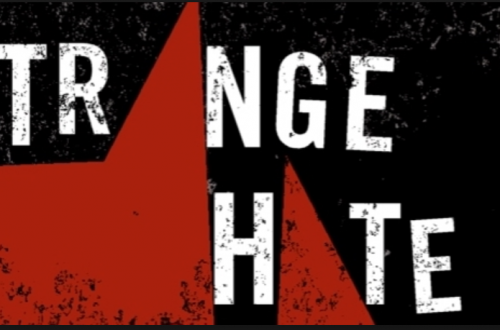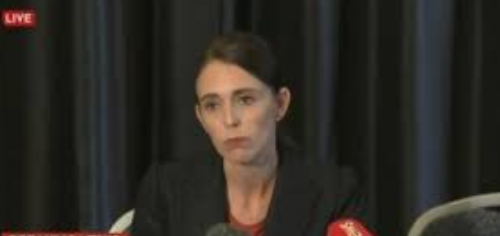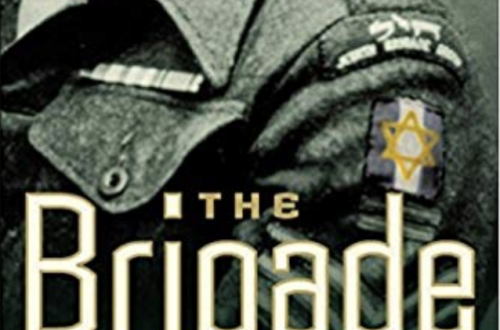This is a guest post by ami
Martin Bright chaired the Interfaith Dialogue discussion about which I posted here.
He wrote a brief, objective and, I thought, entirely unexceptionable report on the event but one of the panellists, The Rev Patrick Morrow, took exception to his report in this letter, copied below, as JC letters are not online.
“Martin Bright is critical of the interfaith “industry”, echoing remarks by Dr Muhammad al-Hussaini, at a recent debate. Bright chaired this meeting, I was one of the panellists. Although Bright does not mention it, the content of Sheik al-Hussaini’s criticism was robustly challenged by co-panellist Rabbi Wittenberg.
It is not helpful to slur interfaith dialogue as if it were one thing, and self-seeking at that. Dialogue is always risky; one either risks too much or too little. In that debate I for one stressed the importance of getting the process of the dialogue right. But that is different from excluding in advance those who have a radically different vision.”
I did not cover Rev Morrow’s or Patrick Sookhdeo’s contributions to the event in my previous post, choosing to focus on the impact Sheik al-Hussaini’s contribution made on me, and the tensions between his and Rabbi Wittenberg’s approach. But I see Rev Morrow’s letter as doing Bright’s journalistic integrity an injustice, and in tribute to his much admired, and sadly, just ended tenure at the JC, I cannot let this version of the event pass.
I cannot recall Rev Morrow contributing anything unexpected, except that he objected to the use of the term extremism, as he would call himself extremely religious. His answer to the question, when do you draw the line at dialogue, was if he couldn’t raise Human Rights.
I do take great issue with the way he presents the discussion in his letter. To imply that either Sheikh al-Hussaini or Patrick Sookhdeo was advocating “excluding in advance those who have a radically different vision” and characterising their positions as a “slur” is a travesty of the considered, and in the Sheikh’s case, anguished responses that these two panellists gave to the chair’s question: Is there a point where dialogue stops?
A detailed account of Sheik al Hussaini’s response is in my previous post.
Patrick Sookhdeo who has an interesting faith background, said he would draw the line at speaking to those who conducted a double discourse, like a Pakistani participant in interfaith dialogue who said he opposed the blasphemy law when he had been one of the architects of that law, and any form of dialogue that does not address fundamental rights, especially those of women and children.
In assessing whether to dialogue, he would ask himself: How do I know I will not be manipulated, my words edited? Can I trust the system? What is the end game? If it is an end to violence, it is worth the risk. He had to engage with murderers in Kandahar when people’s lives were directly a stake.
It is one thing for Rev Morrow to declare “Dialogue is always risky”; But these two panellists put forward deeply principled positions which the Sheik in particular maintains in the face of ongoing threats to himself and his family. (Sookhdeo has also reportedly received death threats, following the publication of one of his books).
Rev Morrow reproaches Bright for not mentioning that Rabbi Wittenberg “robustly challenged” the “content” of Sheik al-Hussaini’s criticism. I did not hear Rabbi Wittenberg doing so. Rabbi Wittenberg simply objected to Sheik’s al-Hussaini’s use of the term Interfaith Industry. The Sheik used the term to slam Saudi Arabian funded interfaith initiatives which in his experience, preach duplicitously benign or malign messages depending on the audience.
In Rev Morrow’s view, are the examples put by one questioner just “a radically different vision”? She asked Rabbi Wittenberg how she as a Jewish woman should feel about his association with a mosque which hosts a preacher who says “do not have any mercy neither compassion on the Jews, .. Their women are yours to take, legitimately… Why don’t you enslave their women”; how a Bangladeshi should feel about the same mosque hosting Islamic preachers, whose leaders have just been convicted of war crimes there. Rabbi Wittenberg had no response for her, or for my question:
“We have heard Sheik al-Hussaini’s heartfelt description of how Muslims like him feel marginalised and demoralised. How can we help him? Will you help, by demonstrating publicly how you’re not being co-opted by extremists?”


